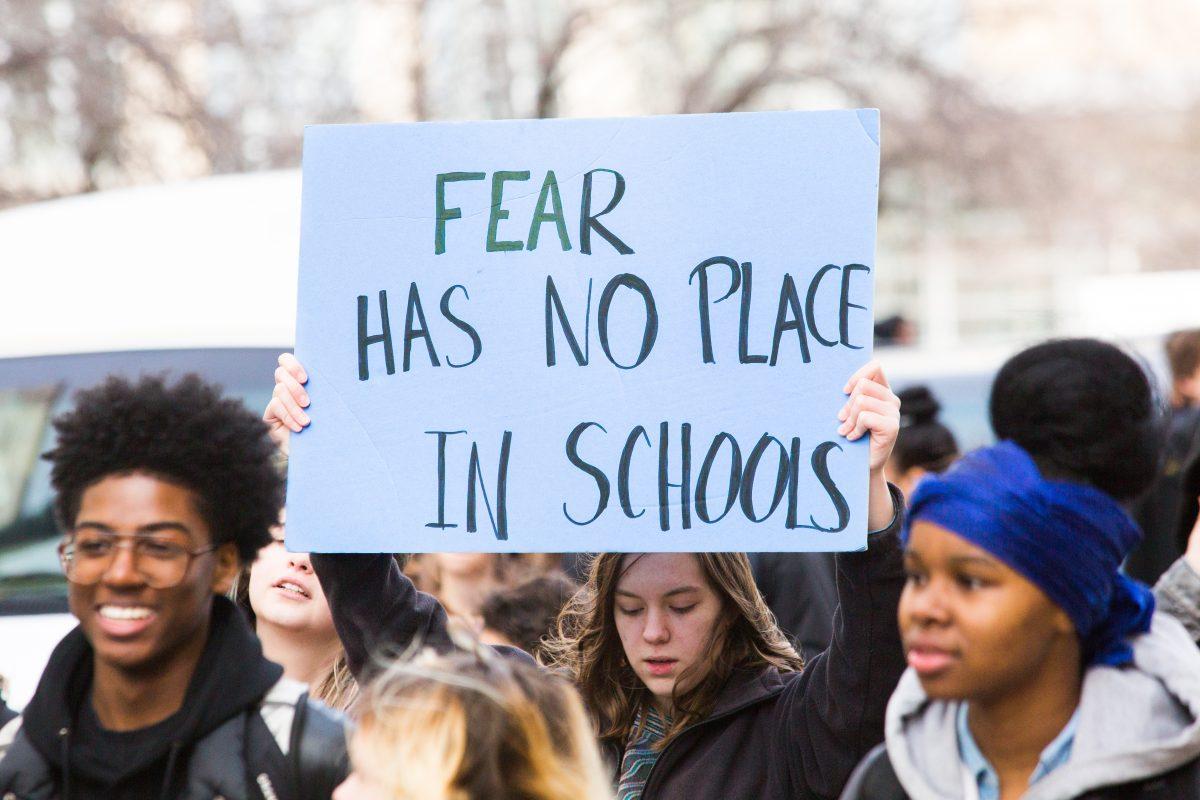Education majors discuss gun violence in schools
In the wake of recent school shootings, education majors have something else to consider as they prepare to become teachers: how to protect their future classes from potential gun violence.
“There’s a lot of violence in schools to worry about,” said Terrance Furin, Ph.D., adjunct professor of education and author of Combating Hatred: Educators Leading the Way. “I think over 10 years what has happened is no one used to have metal detectors or worry about schools being shot up.”
During their first year, education majors at St. Joe’s are required to participate in field observations where they observe classes.
According to Frank Bernt, Ph.D., chair of the teacher education program, with this real-life experience comes real-life potential issues. Crisis procedures are crucial to safety in these situations.
“My hunch is that schools are just now starting to come up clear with this,” Bernt said. “A couple years ago when there was a college shooting involved, St. Joe’s did that. We had a simulated lockdown, so we walked through it, but it was in reaction to it. It wasn’t like anybody saw it coming because it didn’t used to be something we needed to worry about. It certainly is now.”
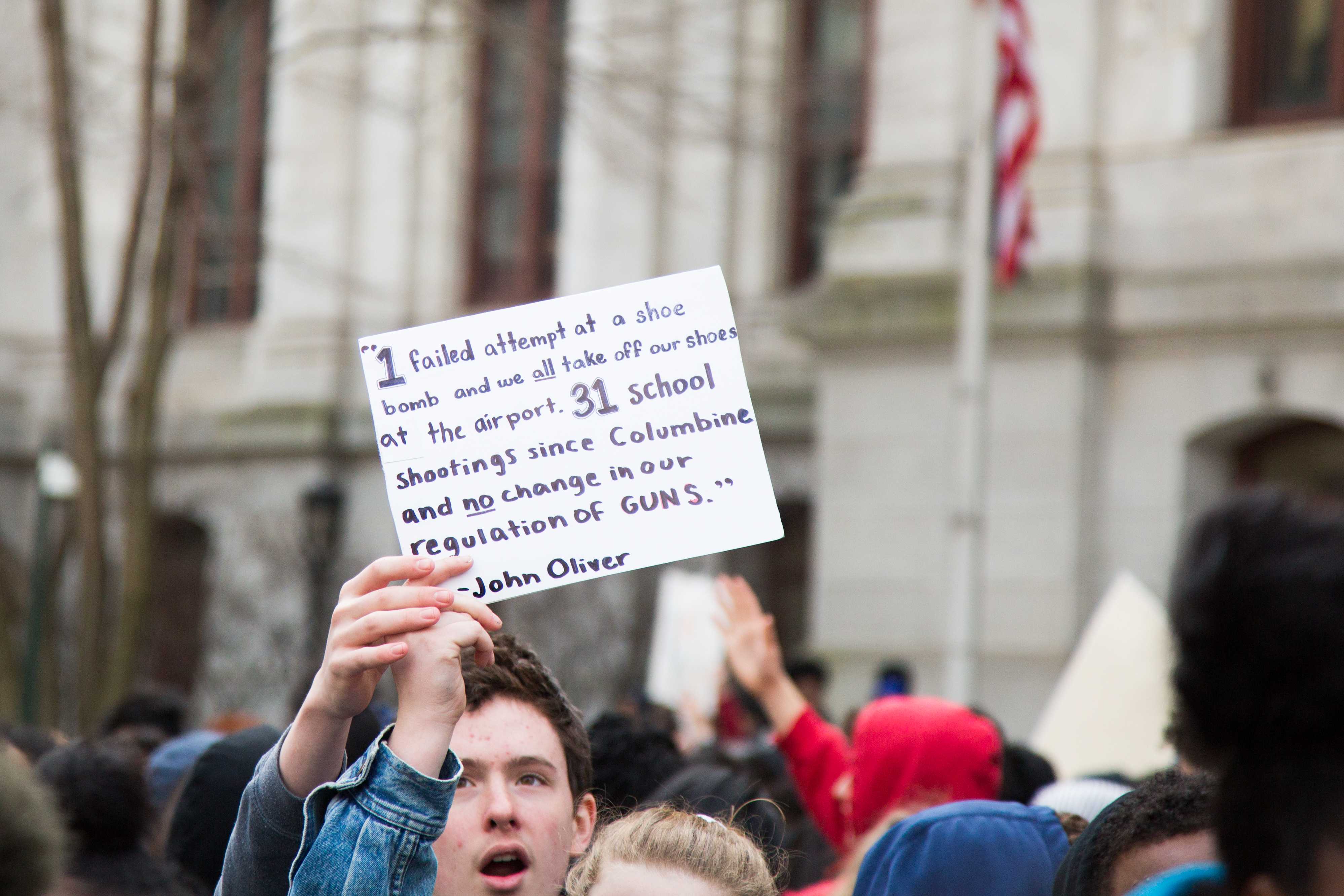
Zara Dugan ’21, a double major in early childhood education and special education, participated in a lockdown practice during her field experience in a kindergarten class.
“It was not a drill for the whole school but the students in my kindergarten class practiced what to do in case there was a drill,” Dugan said.
The recent shooting in Parkland, Florida that killed 17 students has brought this issue into the spotlight and is a relevant issue for future educators, according to Dana Latella ’20, an English and education major.
“Because of the recent happenings in schools with gun violence, I think there should be discussion on gun violence,” Latella said. “It’s a shame that that’s even a question, but I do think future educators need to be aware.”
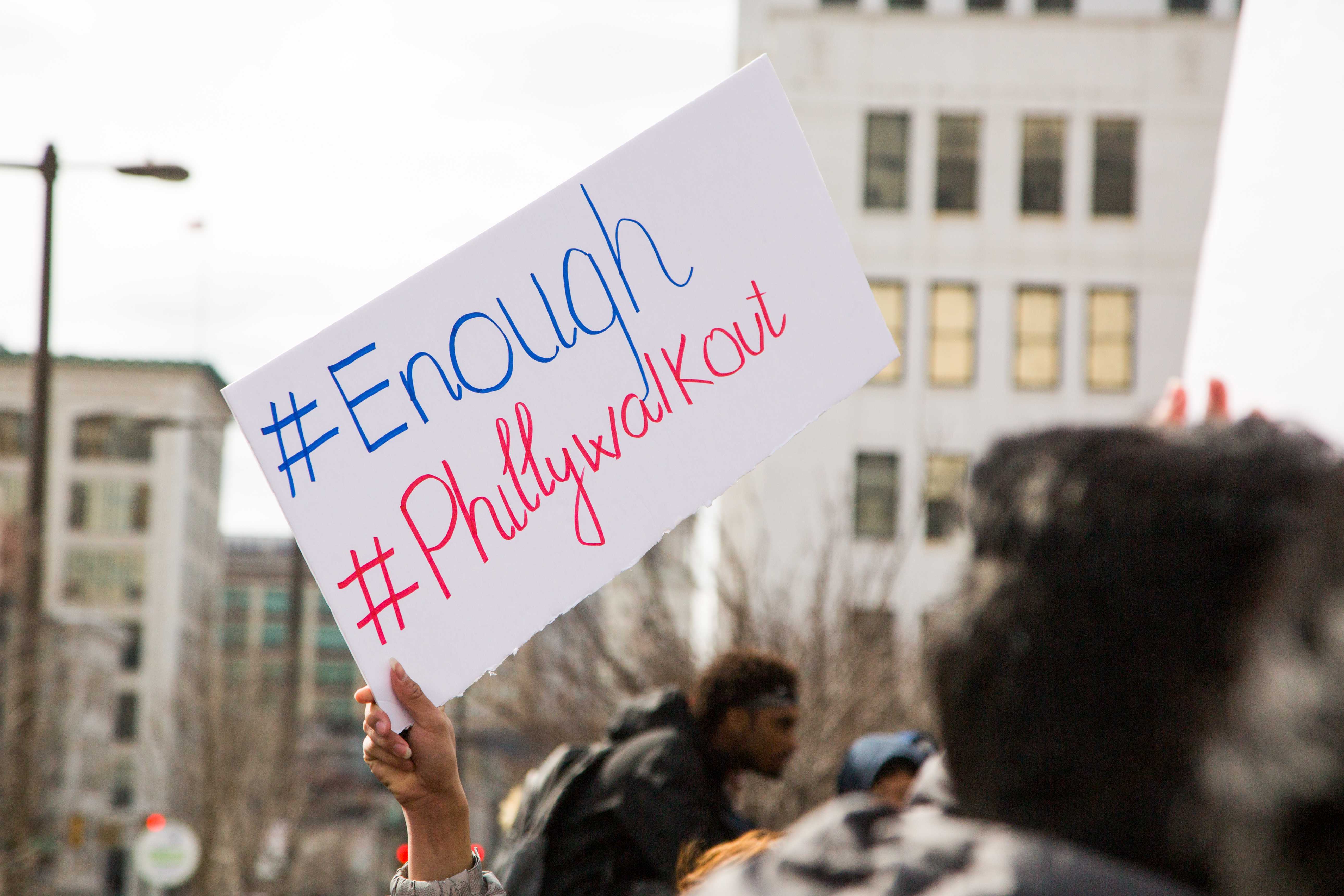
Christina Photiades ’20, an English and secondary education major, said the subject of gun violence came up in one of her education classes last month, after the shooting in Parkland, Fl.
“My professor was visibly upset about the incident, because she did not want any of us to be swayed in our opinions about becoming educators,” Photiades said. “She initiated the discussion and used it as an introduction to the lesson we would be working on that day— which related to how teachers can maintain check-ups with their students.”
Mary “Mollie” Sheppard, Ed.D., a special education professor, acknowledged she initiated the conversation about the Parkland shooting, in Photiades’ class.
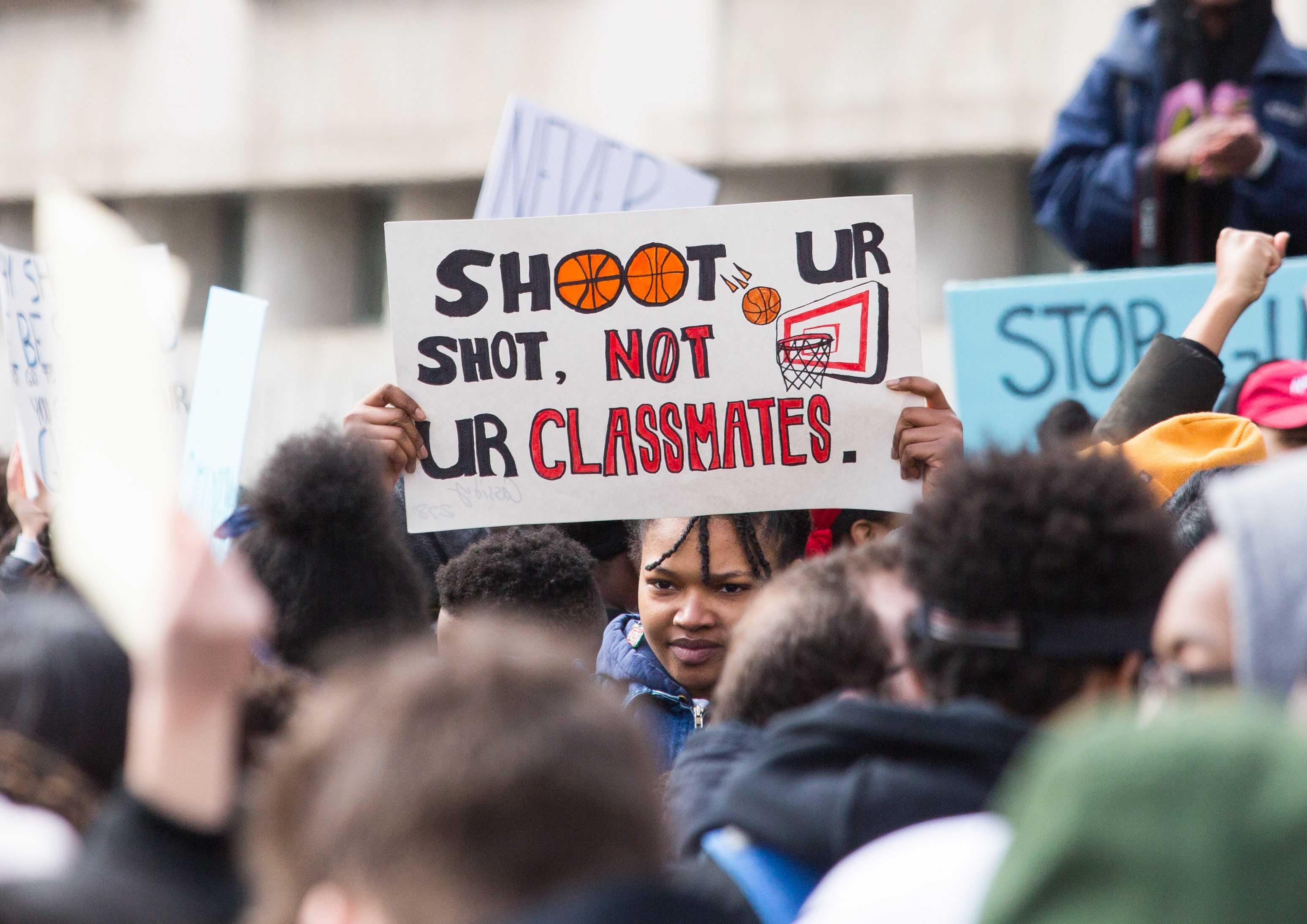
“If there is one place it should be discussed in an open constructive fashion, it is in the classroom,” Sheppard said. “It is scary and it is very real and they [future teachers] will do lockdown drills and hopefully they will only ever do lockdown drills. In your education classrooms is where it should be talked about.”
Catharine Lance ’21, an early education and special education double major, agrees that this discussion needs to occur in college classes.
“At the university level, it is imperative to impart information that will realistically help and guide educators in handling violent situations,” Lance said. “Personally, I see a true value in having more discussions and information sessions about how to protect children and find ways to speak to lawmakers about the need for safer classrooms.”
Photiades said she is even more committed to her calling.
“I think that it encourages me more to ensure my students know they are appreciated and are aware that someone cares if they are going through a tough time,” Photiades said. “I would never be reluctant to do something out of fear, especially if I knew that I could make a difference or prevent such an action.”
Educators at St. Joe’s want to remind their students that these incidents occur and that it is important to acknowledge them.
“I hope it doesn’t deter anyone at all, but I think violence can happen in any job, but sadly it has happened in schools.,” Sheppard said. “And that is why I think it needs to be part of the conversation.”
During her field experience, shortly after the Parkland shooting, Photiades witnessed a discussion between a male teacher and his students in an all boys school in West Philadelphia. The teacher mentioned that the school’s policies are not always “realistic,” and he has to prepare himself as well for possible dangerous situations.
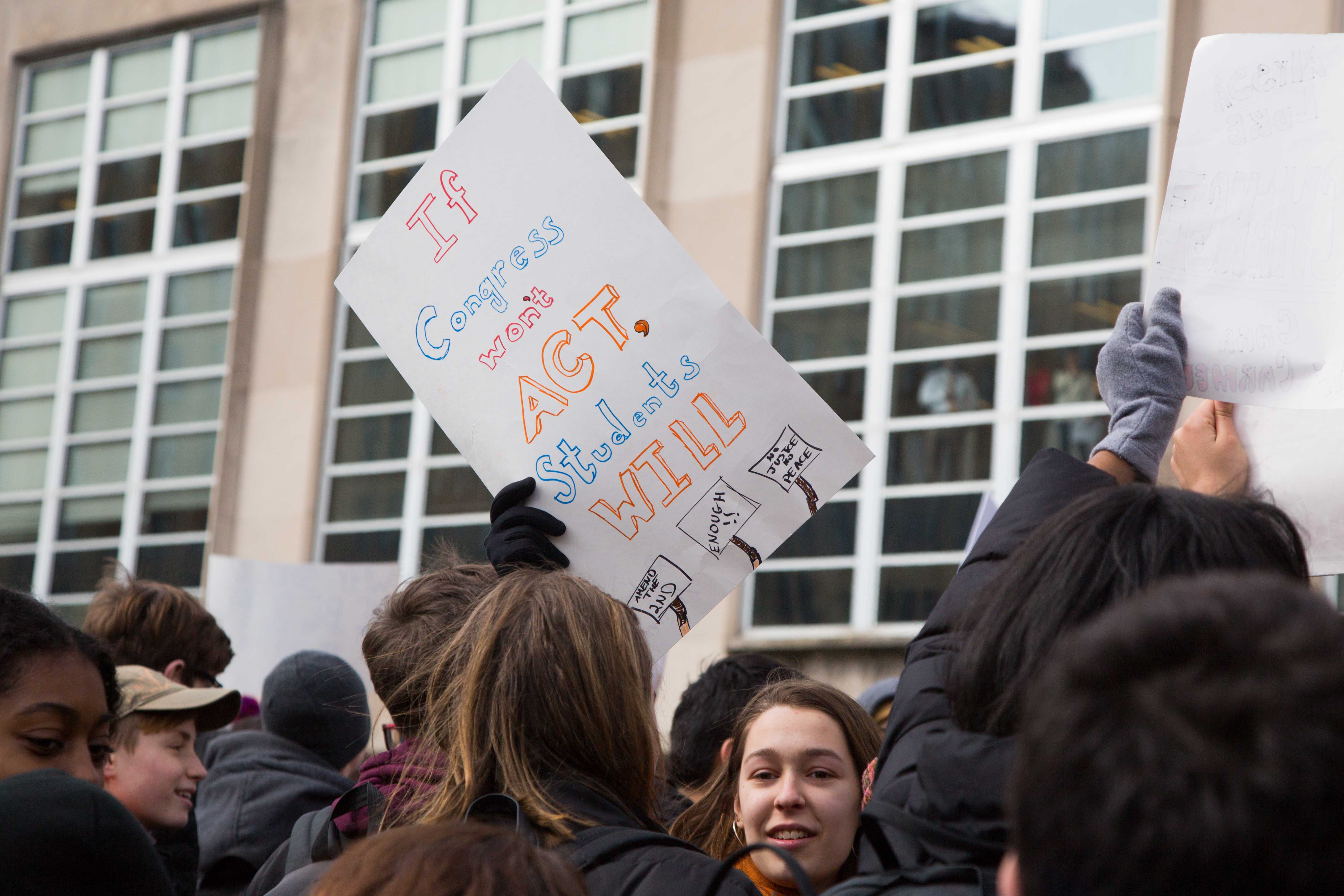
“He is certain that if it was an active shooter situation, there would be no concise way to shove 30 guys who are over six feet tall in a corner and tell them to be quiet,” Photiades said. “Admitting this to his class, one of the students asked then what plan he would use. The teacher responded that using the resources and materials in the classroom for self-defense was a viable option, or perhaps escaping through the window could be a possibility.”
Photiades said this kind of planning is essential to her and other future teachers, not just in the classes they work in outside of the university, but here at St. Joe’s as well.
“I think dialogues like these are extremely important between students and professors, not only in education courses, but in all classes throughout campus,” Photiades said. “For me, it is difficult to plan out the specific steps of action because these incidents are often situational; however, I strongly believe that having a plan is essential.”
Erin Hicks ’21, an elementary education major, is almost a year into her college career but recognizes the relevance of gun violence to her major.
“The sad reality is it probably should be something you learn,” Hicks said. “It shouldn’t be an issue we have to talk about it in class, but in today’s society it is probably something we should do.”













































